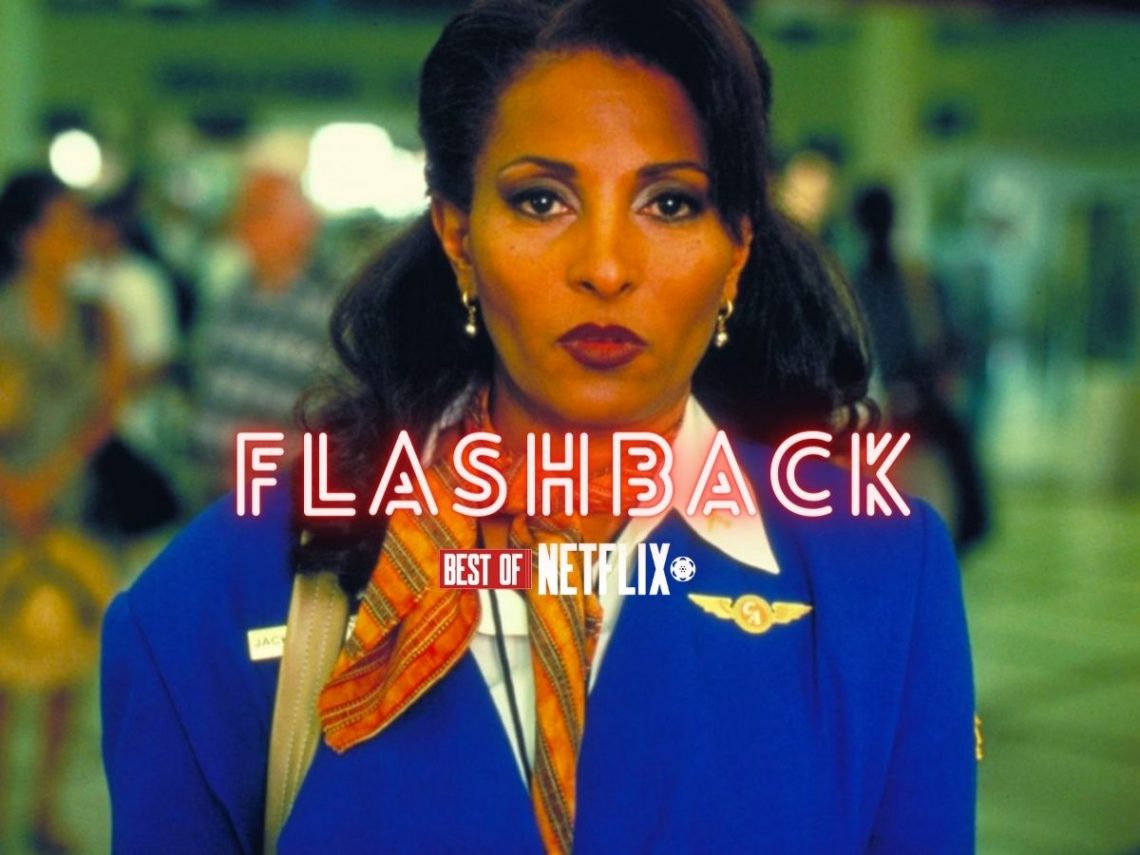The passing of 25 years could age any film in history, yet, somehow, Quentin Tarantino‘s masterpiece in cool, Jackie Brown, seems to be getting better with age. The 1997 flick is, therefore, the perfect movie for this week’s instalment of Netflix Flashback.
While Pulp Fiction and Reservoir Dogs often take the spotlight when it comes to considering Quentin Tarantino’s most iconic films of the 1990s, while Kill Bill and Inglorious Basterds take the same place for his 2000s output, between them lies one of his masterpieces that sometimes falls by the wayside: Jackie Brown.
However, the reality is that Jackie Brown is one of Tarantino’s finest works – and certainly one of his coolest. Several of Tarantino’s films pay respect to one genre or another. For example, Pulp Fiction pays homage to the titular literature that cluttered bookshop shelves in the 1960s, while Kill Bill references anime, Akira Kurosawa, and the revenge genre.
Jackie Brown is Tarantino’s homage to the Blaxploitation films of the 1970s. The film stars Pam Grier in its titular lead role, and Grier herself had previously performed in several Blaxploitation pictures, including Coffy in 1973 and Foxy Brown the year after. Tarantino adapted the 1992 Elmore Leonard novel Rum Punch for the screen, the only time he used another work.
Narratively, Jackie Brown tells of the titular flight attendant who is caught smuggling dirty money from Mexico into California for Samuel L. Jackson’s Ordell Robbie. She is sent to jail, but Ordell soon pays her release bail at a cost…
A pair of LAPD agents are prepared to let Jackie go if she helps to bring down Ordell, while Ordell demands that she only pretend to help the agents whilst continuing her illicit work (or else face death). In the meantime, Jackie is also embroiled with her bondsman, who looks to have fallen in love with her.
In typical Tarantino fashion, Jackie Brown toys with the marriage of complexity and simplicity; there are admittedly twists and concealments, although they don’t feel utterly necessary, seeing as you can easily watch the film merely on aesthetic value alone. Grier somewhat pays respects to her former career, while there is an excellent smaller role for Robert De Niro, and it’s a true delight to watch him smoke a pipe with his iconic confusion and intrigue.
Grier’s opposite – Samuel L. Jackson – also delivers a brilliant performance as Ordell, unsurprisingly effortlessly cool and dressed just about as refined as it is humanly possible to be. One aspect that elevates Jackie Brown’s brilliance is its well-constructed dialogue – as true to life as Pulp Fiction and endearingly gripping, humorous and occasionally touching, particularly in the scenes between Grier and Robert Forster (who plays bondsman Max Cherry).
Yet the defining feature of the movie is undoubtedly its soundtrack, with a suitably heavy leaning on funk and soul in the manner of many of the best blaxploitation films of yore. Bill Withers makes an appearance, as does Bloodstone with ‘Natural High’. Yet the two standout moments are Bobby Womack’s ‘Across 110th Street’, played several times throughout the film and Roy Ayer’s score from Coffy. Jackie Brown is a film dripping in cool and remains an absolute must-see.
